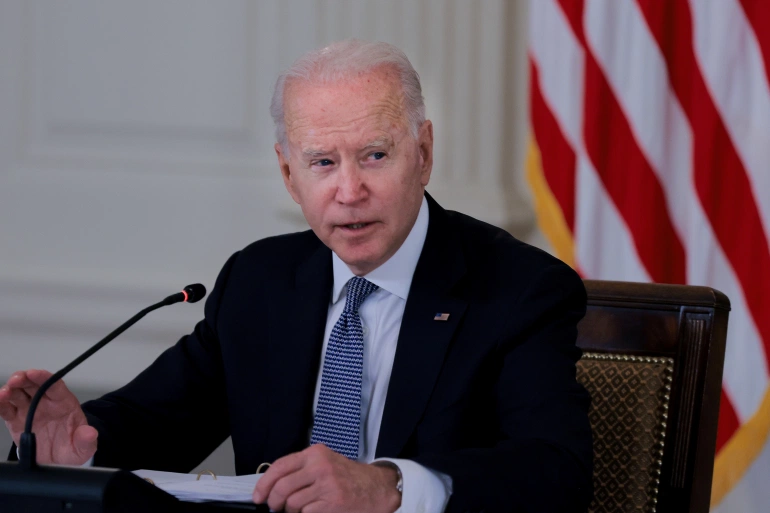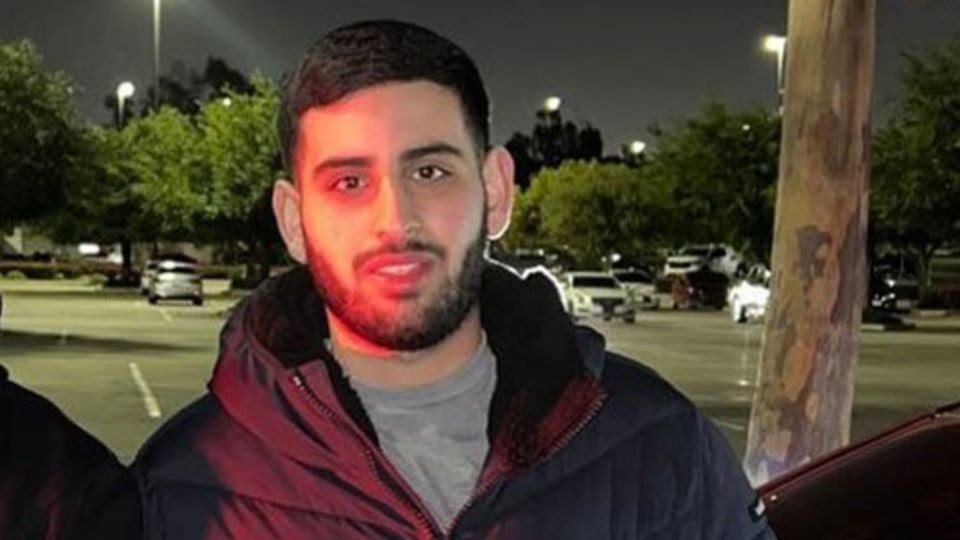Headline
US Warns Citizens Not To Visit Enugu, Delta, Bayelsa, 15 Others
Published
2 years agoon
By
Editor
The US Department of State has advised Americans to reconsider travelling to Nigeria “due to crime, terrorism, civil unrest, kidnapping, and armed gangs.”
Following its travel advisory update done on Wednesday, the US noted that some areas “have increased risk”.
It advised its citizens against travelling to Borno, Yobe, Kogi, and northern Adamawa states due to terrorism and kidnapping; Bauchi, Gombe, Kaduna, Kano, Katsina, Sokoto, and Zamfara states due to kidnapping; Abia, Anambra, Bayelsa, Delta, Enugu, Imo, and Rivers states (with the exception of Port Harcourt) due to crime, kidnapping, and armed gangs.
It further noted that “violent crime – such as armed robbery, assault, carjacking, kidnapping, hostage taking, roadside banditry, and rape – is common throughout the country.”
READ ALSO: Tribunal Judgement: Police In Kano Impose 24-hour Curfew
It said: “Kidnappings for ransom occur frequently, often targeting dual national citizens who have returned to Nigeria for a visit, as well as U.S. citizens with perceived wealth. Kidnapping gangs have also stopped victims on interstate roads.
“Terrorists continue plotting and carrying out attacks in Nigeria. Terrorists may attack with little or no warning, targeting shopping centers, malls, markets, hotels, places of worship, restaurants, bars, schools, government installations, transportation hubs, and other places where crowds gather.
“Terrorists are known to work with local gangs to expand their reach.
“There are civil unrest and armed gangs in parts of Southern Nigeria, especially in the Niger Delta and Southeast regions. Armed criminality and gangs, including kidnapping and assaults on Nigerian security services, are also pervasive in this region.
“Violence can flare up between communities of farmers and herders in rural areas.
“The U.S. government has limited ability to provide emergency services to U.S. citizens in many areas of Nigeria due to security conditions.”
It, however, advised citizens who still choose to travel to Nigeria to: “Carry proper identification, including a U.S. passport with a current Nigerian visa, if needed.
“Use caution when walking or driving at night; keep a low profile; Review travel routes and times to vary your predictability; Do not physically resist any robbery attempt; Be extra vigilant when visiting banks or ATMs.
“Monitor local media for breaking events and be prepared to adjust your plans; Be aware of your surroundings; Stay alert in locations frequented by Westerners; Avoid demonstrations and large political gatherings; Review your personal security plans.
READ ALSO: Gunmen Invade Edo Community, Kill 3 Vigilant Members
“Have evacuation plans that do not rely on U.S. government assistance. Establish a “proof of life” protocol with your loved ones, so that if you are taken hostage, your loved ones know specific questions (and answers) to ask the hostage-takers to be sure that you are alive (and to rule out a hoax).”
Regarding Borno, Yobe, Kogi, and Northern Adamawa states, the US insisted that the security situation in the states was “fluid and unpredictable due to widespread terrorist activity, inter-communal violence, and kidnapping. Security operations to counter these threats may occur without warning.”
It said, “Terrorist groups based in the Northeast routinely target humanitarian camps, security forces, churches, schools, mosques, government installations, educational institutions, entertainment venues, and road .”
As for Abia, Anambra, Bayelsa, Delta, Enugu, Imo, and Rivers states (with the exception of Port Harcourt), the US said crime “is rampant throughout Southern Nigeria, and there is a heightened risk of kidnapping, violent civil unrest, and armed gangs.”
You may like


Four Sentenced To Death For Killing Driver In Bayelsa


Bayelsa Poly Workers Protest Withheld June Salaries


Bayelsa Resolves Oil Well Dispute Between Three Communities


Delta Commissioner Reveals Reason Two-storey Building Collapsed In Asaba


Delta Community King Joins His Ancestors


How UNN Student Killed Lady Over N15,000 Sex Fee –Police
Headline
Nigerian Man Jailed In US For $1.3m COVID-19 Fraud
Published
7 hours agoon
July 12, 2025By
Editor
A Nigerian man living in the San Gabriel Valley, Abiola Femi Quadri, was sentenced to 135 months in federal prison for defrauding California and Nevada out of $1.3m in COVID-19 pandemic unemployment and disability insurance benefits.
Quadri, 43, was caught submitting more than 100 fraudulent applications using stolen identities and using the money to build a nightclub and mall in Nigeria.
He was sentenced by United States District Judge George H. Wu, who also ordered him to pay $1,356,229 in restitution and a $35,000 fine.
This was contained in a press statement issued by the Public Information Officer, United States Attorney’s Office, Central District of California, Ciaran McEvoy, on Thursday, July 10, 2025.
READ ALSO:
Quadri is a Nigerian citizen who acquired permanent residency in the United States through what he described, according to court documents, as a “fake wedding” in messages to a woman who was not his wife.
He pleaded guilty on January 2 to one count of conspiracy to commit bank fraud.
The statement read, “Quadri withdrew the fraudulent unemployment and disability benefits at ATMs from 2021 until his arrest in September 2024 at Los Angeles International Airport, where he was scheduled to fly to Nigeria. Quadri sent at least $500,000 abroad during the scheme.
“He also paid for the construction of a 120-room resort hotel in Nigeria, the Oyins International, which includes a nightclub, a mall, and additional high-end amenities.
READ ALSO:JUST IN: UAE Imposes Fresh Visa Conditions On Nigerians, Bans Transit Visa
“Quadri failed to disclose his ownership of the hotel as required when completing his financial disclosure to the court.”
Investigators found on Quadri’s phone images of 17 counterfeit checks totalling more than $3.3m, along with messages about negotiating the checks.
Some of the checks were made payable to shell businesses held in the names of Quadri’s aliases.
California paid Quadri to provide daycare services to developmentally disabled children through his Altadena-based business, Rock of Peace.
READ ALSO:FG Moves To Evacuate Nigerians From Israel, Iran As Crisis Escalates
When agents searched Quadri’s residence, they found the children’s misappropriated food-aid debit cards.
The United States Postal Inspection Service, Homeland Security Investigations, and the California Employment Development Department Investigation Division investigated this matter.
Assistant United States Attorney Andrew Brown of the Major Frauds Section prosecuted the case.
Headline
Palestinian-American Beaten To Death By Israeli Settlers In Occupied West Bank
Published
12 hours agoon
July 12, 2025By
Editor
…another man shot dead
Israeli settlers killed a 20-year-old Palestinian-American man in the West Bank, according to the Palestinian Ministry of Health and an eyewitness, as settler violence against Palestinians ramps up in the occupied territory.
The twenty-year-old Sayfollah Musallet “was martyred after being severely beaten all over his body by settlers in the town of Sinjil, north of Ramallah,” the health ministry said in a statement on Friday.
The municipality of Sinjel said that Musallet died following a “barbaric attack” carried out by settlers as part of “daily assaults” on local residents. It alleged Israeli forces stormed the area at the same time as the settlers’ attack, obstructing the work of paramedics and volunteers.
A friend of the deceased man’s family told CNN he was with Musallet and took him to a hospital in Ramallah, adding the young man was an American citizen born in Tampa, Florida.
READ ALSO: Family Of Five Killed In Iranian Missile Strike After Fleeing Ukraine For Safety In Israel
Israel’s military said it was “aware of reports regarding a Palestinian civilian killed and a number of injured Palestinians as a result of the confrontation, and they are being looked into by the ISA [Israeli Security Agency] and Israel Police.”
Musallet’s family is demanding the US State Department lead an investigation into the incident.
“We are devastated that our beloved Sayfollah Musallet (nicknamed Saif) was brutally beaten to death by Israeli settlers while he was protecting his family’s land from settlers who were attempting to steal it,” the family said in a statement.
“We demand justice.”
The US State Department said in a statement to CNN that it is aware of reports of the death of an American in the West Bank, without providing a name.
READ ALSO: We Would Have Killed Iran’s Supreme Leader If Given Opportunity – Israel
“Out of respect for the privacy of the family and loved ones during this difficult time, we have no further comment,” a department spokesperson said.
Musallet ran a business in Tampa and had been in the West Bank since June 4 to visit family and friends, the family statement said.
A second Palestinian man died in the attack in Sinjel after he was shot in the chest by settlers, the Palestinian Ministry of Health said. Ten others were wounded in the same attack, it added.
Following the attacks, the Palestinian Ministry of Foreign Affairs criticised what it called Israel’s expanding settlement projects in the occupied territory and called for urgent action to hold the perpetrators of settler violence accountable.
READ ALSO: UK ‘Was Informed Of US Strikes’ On Iran, Plans Evacuating Briton Out of Israel
Israel has recently ramped up military operations in the West Bank, displacing tens of thousands of Palestinians and razing entire communities as it targets what it says are militants operating in the territory.
Multiple American citizens have been killed in the West Bank in the past few years, according to Palestinian officials and eyewitnesses, including a 14-year-old boy whom the Israeli military shot dead last April in what they described as a “counterterrorism operation.”
Israeli soldiers also shot dead a 26-year-old woman during a protest against an Israeli settlement in September 2024.
(CNN)
Headline
Japan’s Petabit: What To Know About Internet Speed That Can Download 67 Million Songs In A second
Published
17 hours agoon
July 12, 2025By
Editor
Researchers in Japan have broken the record for the fastest internet speed ever recorded: 1.02 petabits per second. That’s fast enough to “download 67 million songs in a second.”
Contents
How Fast is 1.02 Petabits Per Second?How Did Japan Make This Happen?
When Can the World Expect to Use This?
According to FirstPost, this new speed could let someone download the entire Netflix library almost instantly—or stream millions of 8K videos at once without any buffering.
To give some perspective, Japan’s new speed is around 16 million times faster than India’s average internet speed of 63.55 Mbps and 3.5 million times faster than the U.S. average.
How Fast is 1.02 Petabits Per Second?
READ ALSO:Google Maps: Obasanjo’s Library, Abia Tower, Emir’s Palace Among Nigeria’s Top Reviewed Places
A petabit is one million gigabits. So when researchers say they hit 1.02 petabits per second, they’re talking about a connection fast enough to transfer more than 100,000 HD movies in just one second.
This speed could technically download the full Netflix catalog in less than a second. Big game downloads, like the 150GB Call of Duty: Warzone, would finish in a flash.
According to Gagadget, the full English Wikipedia is about 100GB. At this speed, you could download it “10,000 times in just one second.”
Music platforms can’t even match the scale. Spotify says a minute of audio uses about 1MB. That means, “with Japan’s new speed, you could theoretically download 67 million songs in a second—that’s more than 1,27,000 years of continuous music.”
While these examples help show how fast this is, the real impact will likely be on emerging technology.
Things like cloud computing, AI, autonomous vehicles, and real-time translation depend on large volumes of data moving quickly. With speeds like this, data centers in different parts of the world could work together almost as if they were on the same local network. That would allow global AI systems to run with almost no delay.
How Did Japan Make This Happen?
The breakthrough came from Japan’s National Institute of Information and Communications Technology (NICT), working with Sumitomo Electric and European partners.
The team sent data over 1,800 kilometers—about the distance from Delhi to Goa—using a specially built fiber-optic cable.
Typical fiber cables send data down a single path of light. This new design packs 19 separate cores into a standard-sized fiber, which researchers describe as “a 19-lane superhighway” for internet traffic. It increases capacity without requiring totally new infrastructure.
READ ALSO:Venezuelan Deportees: US Embassy Gives Reason For Reducing Visa Validity For Nigerians
Sumitomo Electric developed the cable, while NICT and international researchers built the transmission system.
To deal with long-distance signal loss, they used advanced amplification and signal processing. The setup involved 19 loops of fiber, each 86.1 km long, with the signal passed 21 times. That totaled 1,808 km, and during the test, “180 individual data streams were sent at record-breaking speed and stability.”
When Can the World Expect to Use This?
Most home internet is still measured in megabits per second, not terabits, much less talking about petabits. We’re far from seeing these speeds in everyday life. That means using this speed is not anytime soon.
Still, the breakthrough is getting attention from telecom companies, infrastructure providers, and governments. This could help shape the future of undersea cables, national internet backbones, and next-generation networks like 6G.
It may take years to reach consumers, but the progress points toward a future where fast, high-capacity internet becomes standard—not something rare.
(FirstPost/Tribune)
- Anglican Church Bans Partisan Speeches By Politicians During Services
- Woman Dies After Falling Into 170-ft Well
- Bank Fraud: Court Orders Forfeiture Of Cash, Properties
- Court Orders Lagos LG To Vacate Deeper Life Church Land
- Court Sentences Two To Death For Ritual Killing In Ogun
- Four Sentenced To Death For Killing Driver In Bayelsa
- Bayelsa Poly Workers Protest Withheld June Salaries
- Lagos LG Poll: Why We Did Not Shut Border – Immigration
- Nigerian Man Jailed In US For $1.3m COVID-19 Fraud
- FG Secures 44 Fresh Convictions On Terrorism Financing
About Us
Trending

 Metro3 days ago
Metro3 days agoMysterious Bird Found Inside Auchi Poly Lecturer’s Office, Killed

 News5 days ago
News5 days agoBREAKING: FG Officially Releases Age Limit For Admission Into Tertiary Institutions

 News5 days ago
News5 days agoOPINION: APC’s Leprosy Versus ADC’s Scabies

 Politics4 days ago
Politics4 days ago‘The Man I Defeated 32 Years Ago Hasn’t Forgiven Me’ – Ita-Giwa Laments Discrimination Against Women In Politics

 Metro1 day ago
Metro1 day agoJUST IN: Psychiatric Hospital Staff Shot Dead In Benin

 Politics4 days ago
Politics4 days ago97 Lawyers Line Up To Defend ADC, Mark, Aregbesola Against APC’s ‘Fake Lawsuit’

 News3 days ago
News3 days ago‘I Feel Your Pain’ – Ighodalo Reacts To S’Court Verdict On Edo Guber Election

 News4 days ago
News4 days agoSyncope Or Fainting: What You Need To Know

 Metro18 hours ago
Metro18 hours agoMy Husband Grabs, Squeezes My Breasts Any Time He Wants Sex — Wife

 Headline4 days ago
Headline4 days agoFull List: 3 African Countries Ranked Among World’s Best Countries































